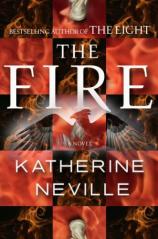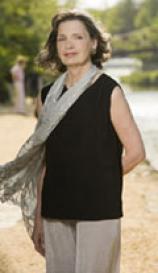Reading Group Guide
Discussion Questions
The Fire

1. Mother-Daughter relations:
Alexandra "Xie" Solarin, the protagonist of The Fire, was a child chess prodigy who was encouraged to play chess by everyone except her mother, Cat Velis. We know what dangers Cat was afraid of for her daughter --- but Alexandra does not realize this, and she severs relations with her mother early on. Alexandra's father, likewise, had lost contact with his mother at an early age. And Sage Livingston, Xie's arch-nemesis, has her own maternal hang-ups with her mother Rosemary.
What deep interconnections between mothers and their offspring are explored within The Fire? And how do these convey the message of the book's underlying theme?
2. Chess --- the Cosmic Game:
Why use chess as a structure for the novel? The chess board itself and the pieces all play roles as characters and plot elements in The Fire. To Alexandra, who thinks like a chess player, they mean something quite different than to the rest of us. How many different situations do we find which relate to everything from our ordinary "chess-like" tactics and strategies in life, up to the "cosmic" theme of chess: from moves that are made by the characters, to the layout and design of cities? How are these connected within the story?
3. Cuisine --- the root of all Good and Evil:
Neville's books all deal with food --- but in The Fire, the heroine, Xie, is actually an apprentice to a master chef in Washington DC. In most novels, food is rarely mentioned. But in this book, cuisine and its exquisite preparation appear in almost every scene. Why did Alexandra transition from being child chess prodigy to being a chef? How are the preparation and ingestion of food and liquor so critical to the story?
4. Byron and Freedom:
Lord Byron the poet died in Greece and will always be associated with the War of Greek Independence against Turkey, as depicted in The Fire. But as the book describes too, he also supported the Italians against their Austrian overlords, and many others. What critical role, in that respect, does Byron play in the underlying theme of the book? What is the importance of the message Shelley sends to him from his watery grave?
5. Catherine the Great and Power:
Catherine the Great, "Empress of all the Russias," is one of the few transitional characters to play an important role in both The Eight and The Fire. What is her key role --- and how does it affect the change from one idea of power to another?
6. New York City and Washington DC:
The important early scenes in The Eight are set in New York where Cat Velis is a young computer expert --- public places like the United Nations, the Diamond District, the Plaza, Central Park South. In The Fire, Cat's daughter Xie is more familiar with hidden places in Colorado and Washington DC. What parallels can be drawn from the contrasts between these two images?
7. Christianity and Islam:
The chess set of Charlemagne --- the first Holy Roman Emperor --- was not created (as we learn in The Fire) for Charlemagne. It was created in 775 AD in the then-brand-new city of Baghdad. What is the significance of the connection between the importance of this chess set for Islam --- which created it --- and Christianity --- which possessed it since the time of the first Emperor of the West?
8. "To Laugh or not to Laugh":
Why does Neville constantly use humor throughout these books --- even in situations which might seem to be dire? What is the importance of laughter in the midst of tragedy? What role do comedy, satire, and irony play in the telling of serious stories from our past?
Click here to read a series of essays written by a variety of authors (including Katherine herself) which explore in-depth aspects of each of her novels and --- in the case of The Eight and The Fire --- the interconnections between these diverse elements.
If you have especially interesting discussion questions for The Fire, Katherine would love to hear about them. Click here to submit your ideas.








